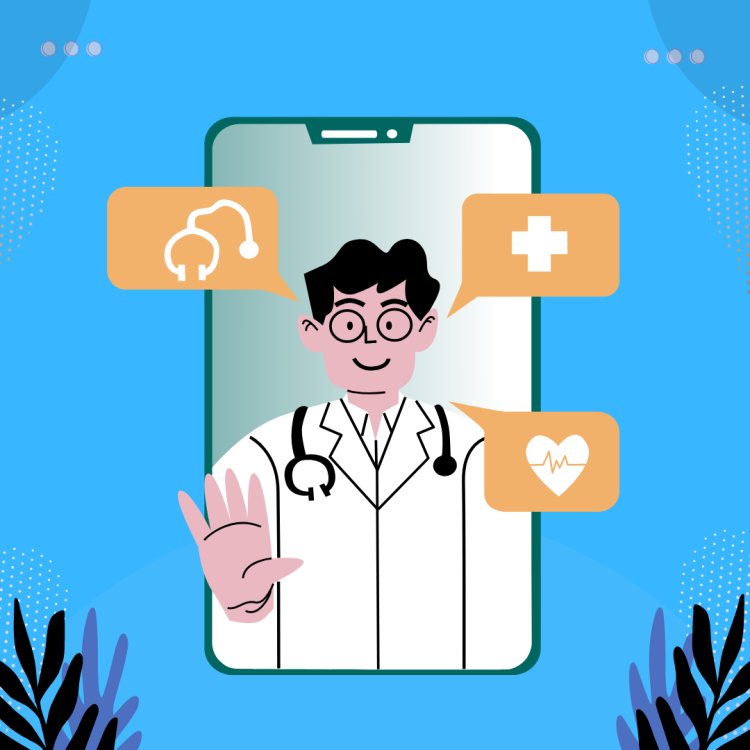Custom Healthcare Apps: Features and Benefits
These apps are designed to address the unique needs of healthcare providers and patients
Share this Post to earn Money ( Upto ₹100 per 1000 Views )

In recent years, the healthcare industry has experienced a digital transformation, largely driven by the development of custom healthcare apps. These apps are designed to address the unique needs of healthcare providers and patients, improving efficiency, accessibility, and overall care quality. In this blog, we'll explore the essential features of custom healthcare apps and the benefits they offer to the healthcare industry.
Essential Features of Custom Healthcare Apps
Custom healthcare apps are tailored to meet specific requirements of healthcare providers, patients, and administrative staff. Here are some of the key features that make these apps indispensable:
1. Patient Management
Efficient patient management is the cornerstone of any healthcare app. Features such as patient registration, appointment scheduling, and patient history tracking are vital. These tools allow healthcare providers to manage patient information seamlessly, reducing the administrative burden and minimizing errors.
2. Telemedicine and Virtual Consultations
Telemedicine has become increasingly important, especially in the wake of the COVID-19 pandemic. Custom healthcare apps with telemedicine capabilities allow patients to consult with healthcare professionals remotely. Features like video conferencing, secure messaging, and virtual appointment scheduling enhance accessibility to care.
3. Electronic Health Records (EHR)
Integrating EHR systems into custom healthcare apps is crucial for maintaining comprehensive patient records. EHR features enable healthcare providers to access and update patient information in real-time, ensuring continuity of care and reducing the risk of errors.
4. Prescription Management
Custom healthcare apps often include features for electronic prescriptions (e-prescriptions). This allows healthcare providers to send prescriptions directly to pharmacies, reducing the risk of errors associated with handwritten prescriptions and streamlining the medication dispensing process.
5. Health Monitoring and Wearable Integration
Many custom healthcare apps are designed to integrate with wearable devices, enabling real-time health monitoring. Features such as heart rate tracking, blood pressure monitoring, and activity tracking provide valuable data that can be shared with healthcare providers for better diagnosis and treatment.
6. Secure Communication
Ensuring the security and confidentiality of patient data is paramount in healthcare. Custom healthcare apps include secure messaging and data encryption features to protect sensitive information from unauthorized access and cyber threats.
7. Billing and Insurance Management
Custom healthcare apps can streamline the billing process by integrating with insurance providers and offering features for claims management, payment processing, and invoicing. This reduces administrative overhead and ensures timely payments.
8. Appointment Reminders and Notifications
Automated appointment reminders and notifications help reduce no-show rates and ensure that patients receive timely care. Custom healthcare apps can send reminders via SMS, email, or in-app notifications, improving patient engagement and adherence to treatment plans.
Benefits of Custom Healthcare Apps
The implementation of custom healthcare apps offers numerous benefits to healthcare providers, patients, and the healthcare system as a whole. Here are some of the key advantages:
1. Improved Patient Engagement
Custom healthcare apps enhance patient engagement by providing easy access to healthcare services and information. Patients can schedule appointments, communicate with healthcare providers, and access their medical records from the convenience of their mobile devices. This increased engagement leads to better health outcomes and patient satisfaction.
2. Enhanced Efficiency and Productivity
By automating administrative tasks and streamlining workflows, custom healthcare apps improve the efficiency and productivity of healthcare providers. Features like appointment scheduling, electronic health records, and e-prescriptions reduce the time spent on paperwork and allow healthcare professionals to focus more on patient care.
3. Better Access to Care
Telemedicine features in custom healthcare apps break down geographical barriers, allowing patients in remote or underserved areas to access quality healthcare services. Virtual consultations and remote monitoring enable healthcare providers to reach a broader patient base and provide timely care.
4. Improved Diagnosis and Treatment
Custom healthcare apps that integrate with wearable devices and health monitoring tools provide healthcare providers with real-time data on patients' health conditions. This data-driven approach enables more accurate diagnoses and personalized treatment plans, ultimately improving patient outcomes.
5. Cost Savings
By reducing administrative overhead and streamlining processes, custom healthcare apps can lead to significant cost savings for healthcare providers. Additionally, telemedicine and remote monitoring reduce the need for in-person visits, lowering healthcare costs for patients and providers alike.
6. Enhanced Data Security
Data security is a critical concern in healthcare. Custom healthcare apps are designed with robust security features, including data encryption, secure communication channels, and compliance with healthcare regulations such as HIPAA. This ensures that patient information is protected from unauthorized access and cyber threats.
7. Better Resource Management
Custom healthcare apps help healthcare providers manage their resources more effectively. Features such as patient management, appointment scheduling, and billing integration allow for better allocation of staff, equipment, and finances. This leads to more efficient operations and improved patient care.
8. Compliance with Regulations
A reputable custom healthcare software development company ensures that the apps they develop comply with industry regulations and standards. This includes adherence to HIPAA, GDPR, and other relevant regulations, ensuring that healthcare providers meet legal requirements and avoid potential penalties.
Conclusion
Custom healthcare apps have revolutionized the way healthcare services are delivered and managed. With features like patient management, telemedicine, EHR integration, and secure communication, these apps enhance efficiency, accessibility, and the quality of care. The benefits of custom healthcare apps extend to improved patient engagement, better diagnosis and treatment, cost savings, and enhanced data security.
As the healthcare industry continues to evolve, the demand for custom healthcare apps will only grow. Partnering with a reliable custom healthcare software development company ensures that healthcare providers receive tailored solutions that meet their specific needs and comply with industry regulations. Embracing this digital transformation is essential for healthcare providers to stay competitive and deliver the best possible care to their patients.

 emmawatson11
emmawatson11 





